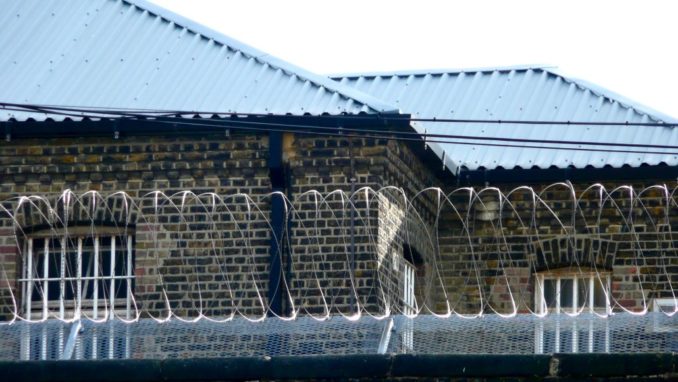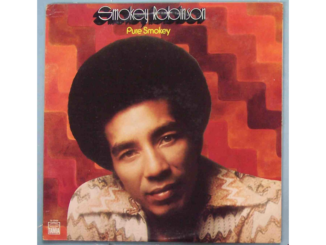
This is the story of Chris Difford, a ne’er-do-well written off as ‘backward’ at school who went on to achieve fame and fortune as the founder and lyricist of the band Squeeze. Squeeze had a string of hits in the eighties, with Difford and Tilbrook’s quirky, hummable and very English songwriting skills more than once being compared to Lennon and McCartney. Personally I think their observational wordsmithing and musical attack have more in common with the Kinks, but there you go.
To borrow a football analogy, in my mind this is very much a book of two halves. I was surprised to see the early parts of it described in a review on a well-known bookselling site as ‘skippable’, as to me they were among the highlights of it. Difford was born in Greenwich in 1954 to a father who had been in the army then worked for the Gas Board and a somewhat ferocious-sounding Northern Irish Protestant mother. Having met in WWII during Difford senior’s time in Belfast, she negotiated as part of her marriage agreement that she would go home to Coleraine for several weeks a year every summer, which they all duly did. The family eventually settled in Charlton and had three sons brought up on what would seem to us now as next to nothing, yet their youngest son clearly views his childhood as idyllic. They had a tin bath outside. His Dad had a bicycle, but never a driving licence.
Difford did badly at school. His attention span minimal, he did however become inspired by a young teacher to try writing poetry. Instantly hooked, it became a hobby, obsession and career which never left him. His talent for summing up everyday experiences and making them entertaining comes through in the book. When asked by the careers officer at school what he wanted to do when he left, ‘whenever I suggested something, he knew better’. A pilot in the air force? Have to work jolly hard to do that, he was told. Go away and give it more thought. Having seen an interview with Pete Townshend, Difford said at the next interview he’d like to be in the Who. When that was also laughed at, and asked what he’d *really* like to do, he sat and thought. A pig farmer?
Leaving school, going to gigs and getting into drugs were all accompanied by his imaginary friends and his imaginary band. In his head, it was all already happening but it took the nicking of 50p from his mum’s purse to put the famous advert in a sweet-shop window asking for a guitarist to join a band for ‘a record deal and touring’. There was no band, much less a record deal or any tour. The only phone call was from a young girl, who thought her boyfriend might be interested but he was too reticent to come to the phone himself. Difford was put out when said boyfriend turned out to be ‘that annoying hippy who played mandolin by the zebra crossing in the middle of Blackheath Village’. Tilbrook, a fantastically talented musician, was famous locally for being expelled from school for refusing to cut his hair. And so the concept of Difford and Tilbrook, almost accidentally, came into being. At their first meeting outside The Three Tuns, ‘Glenn and Maxine were dressed in silks and cotton, cheesecloth and beads. Shoeless Glenn looked like Jesus without a beard; Maxine like an angel … They were like Mary and Joseph. I may have been the donkey’.
It’s staggering to realise just what a big proportion of their subsequent hits were written in this early phase, sitting at one or other’s home, churning them out and having a whale of a time doing it. Sadly, they were later to be ripped off by manager Miles Copeland in what Difford describes as ‘the day I signed my life away for £15 a week’. Because of the appalling deal Copeland suckered them into, the band will never own their own copyrights. Tilbrook later had the idea of re-recording their original hits onto new master tapes, so at least they owned something, but somehow it never worked out.
The second half of the book details post Squeeze, featuring the many bust-ups and reunitings with Tilbrook, alongside battles with drugs, alcohol, depression, and, seemingly, purpose. This was a bit less interesting to me, as we see a rather rudderless Difford working with stars like Elton John and Bryan Ferry, becoming the latter’s driver and ‘lyric doctor’ (wrestling with weighty matters on Brian’s finicky mind such as whether the word Martini in certain contexts should have a capital or small m). He attends AA and rehab, has therapy, and finally after a series of relationships, divorces, kids and house moves, settles down in Sussex in the parish of the Rev Peter Owen Jones (rather trendy telly vicar). In addition to singing and playing, Chris now arranges and attends song-writing workshops up and down the country.
What struck me is the searing honesty. As with his lyrics, he doesn’t pull any punches and tells a lot of stories against himself. When being introduced once by Peter Kay (big mates, apparently), he recounts how Kay says, ‘And now please welcome … Glenn Tilbrook from Squeeze!’ only to then go on, ‘Oh, no! We’ve got the wrong one! We’ve got the one that can’t sing!’ (Difford, who had a history of being hesitant about his guitar-playing skills, strums.) ‘He doesn’t know the chords either! Ask for your money back!’
There are parts in his youth where he steals lighters en masse from shops and fences them in pubs via his brother. Where he nicks money from his hard-up dad’s wage packet. Where he gets a good job as a barrister’s clerk, then steals the payroll and lies about it to try and cover up. Bits where he dosses about and thinks of no-one but himself. If I’d ever met him back then, he would probably have been everything I’d have hated. But what a talent, and what a band. 8/10.
Difford, Chris: Some Fantastic Place – my life in and out of Squeeze. London: Weidenfeld and Nicolson, 2017
© foxoles 2021
The Goodnight Vienna Audio file



